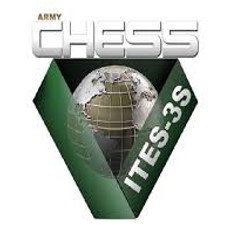As artificial intelligence continues to redefine the competitive landscape, organizations across industries are rapidly scaling up their AI strategies. Yet, amid the promise and hype of AI, the real determinant of enterprise value lies not solely in the algorithms or platforms - but in the decisions organizations make about which AI initiatives to pursue, why, and how. This is where professional business case skills become indispensable.
Business cases are more than just financial justifications - they are comprehensive frameworks for strategic decision-making. In AI-enabled organizations, professional business case skills ensure that AI investments are not guided by technological fascination but by real business need, measurable impact, and strategic alignment. They transform AI from a series of disconnected experiments into an integrated, value-driven enterprise capability.
Aligning AI Initiatives with Strategic Objectives
AI can enhance operations, customer experience, risk management, and more - but not every use case is worth pursuing. Professional business case skills provide the clarity to evaluate AI opportunities through the lens of strategic business objectives.
For example, a global logistics company seeking to optimize last-mile delivery through AI route optimization must first ensure that the initiative directly supports its goals of reducing operational costs and improving delivery speed.
A professional business case draws explicit links between the AI use case and the company’s strategic priorities - enabling business leaders to assess whether the investment advances the organization's core mission.
By aligning AI initiatives with enterprise goals, business cases shift decision-making authority away from purely technical stakeholders and into cross-functional strategic forums - ensuring AI doesn’t become a solution in search of a problem.
Defining Value Propositions and ROI
AI requires significant upfront investment in data infrastructure, model development, and change enablement. Without a clear value proposition, even promising AI projects can fail to win executive support - or worse, fail in the field.
Professional business case skills help define both the tangible and intangible benefits of AI. Tangible returns may include reduced cycle times, increased throughput, or fewer manual errors. Intangible returns could involve improved customer trust through better fraud detection or enhanced compliance with evolving regulations.
Consider a financial services firm evaluating a natural language processing (NLP) solution for automating regulatory filings. A strong business case quantifies time savings for analysts and identifies risk reduction as a key value driver, resulting in a defensible ROI that balances cost with strategic outcomes.
Enabling Informed Prioritization in a Crowded Portfolio
AI portfolios often include dozens of potential projects - from chatbot pilots to predictive maintenance models. However, not all projects deliver equal value - or require equal effort. With limited resources, organizations must be able to prioritize wisely.
Business case frameworks enable comparisons between initiatives based on cost-benefit analysis, implementation feasibility, organizational readiness, and risk exposure. For example, a healthcare provider may use business cases to determine whether to first pursue an AI model for clinical decision support or for revenue cycle optimization. Without this structured prioritization, AI investments often stall or misfire.
Mitigating AI-Specific Risks
AI projects come with unique technical, ethical, and regulatory risks. Data bias, explainability issues, evolving privacy laws, and integration complexity can all derail AI initiatives if not proactively addressed.
Professional business case skills incorporate robust risk analysis into the planning process - identifying data quality gaps, legal uncertainties, and model governance needs. This foresight builds credibility with executives and regulators, positioning AI as a responsible and scalable capability.
For example, a retail bank proposing an AI-based credit scoring model must present a clear mitigation plan for potential bias and ensure regulatory transparency. A business case that addresses these issues head-on fosters trust and accelerates decision-making.
Driving Cross-Functional Buy-In and Accountability
AI touches multiple functions - data science, IT, operations, legal, compliance, HR - and without alignment, projects flounder. A professional business case serves as a central reference document that articulates scope, objectives, timelines, and stakeholder roles.
Well-developed business cases foster early buy-in, clarify ownership, and reduce friction across departments. For instance, a manufacturing company implementing AI for predictive maintenance must align plant managers, IT teams, and reliability engineers around a common value proposition and execution plan. The business case becomes the collaboration blueprint.
Supporting Governance, Funding, and Portfolio Management
As AI transitions from pilot projects to enterprise programs, governance becomes essential. Business case skills support portfolio steering committees, budget allocation, and performance oversight.
A strong business case presents detailed cost structures, resource requirements, and phased funding models. It becomes the basis for securing funding and provides the benchmark for tracking performance against expected outcomes - ensuring accountability throughout the AI lifecycle.
Enabling Continuous Evaluation and Reuse
Business cases are not static documents - they evolve with project maturity. Professional business case frameworks include metrics for tracking real-time results, facilitating course correction, and identifying lessons learned.
This is especially valuable in agile environments where AI initiatives are delivered incrementally. For example, a telecommunications provider rolling out AI-driven network optimization uses the business case to track bandwidth utilization improvements, make iterative adjustments, and justify expansion into new regions.
Additionally, well-structured business cases serve as reusable templates for future projects - accelerating the maturation of AI capabilities across the organization.
Institutionalizing AI as an Enterprise Discipline
Ultimately, professional business case skills elevate AI from a series of disconnected proofs-of-concept to a governed, repeatable discipline. They instill a culture of evidence-based innovation - ensuring that AI is pursued not for its novelty, but for its ability to drive real business transformation.
Industries such as utilities, insurance, education, and logistics are already demonstrating that AI’s true value lies not just in its technical power, but in its strategic deployment. Organizations that institutionalize business case rigor are better positioned to turn AI into a competitive advantage - while others risk spinning their wheels in costly experimentation.
Conclusion
In AI-enabled organizations, professional business case skills are a strategic imperative. They align AI initiatives with business value, define ROI, mitigate risk, prioritize investment, and ensure cross-functional commitment. Without them, AI remains siloed and speculative. With them, AI becomes a structured, scalable, and high-impact enterprise capability.
Professional business case skills are the compass that guides AI innovation toward outcomes that matter - ensuring that every AI dollar spent translates into measurable business success.
To build and enhance business case skills for the AI era for you and your team, take a look at Inteq’s Developing Professional Business Cases training course and Inteq’s Business Process Management (BPM) Specialist certificate program.
* * * * *
Master of Chaos Newsletter (try it)
Subscribe to my blog | Visit our Knowledge Hub
Visit my YouTube Channel | Connect with me on LinkedIn
Check out our Business Analysis Training Courses & Consulting Services




















